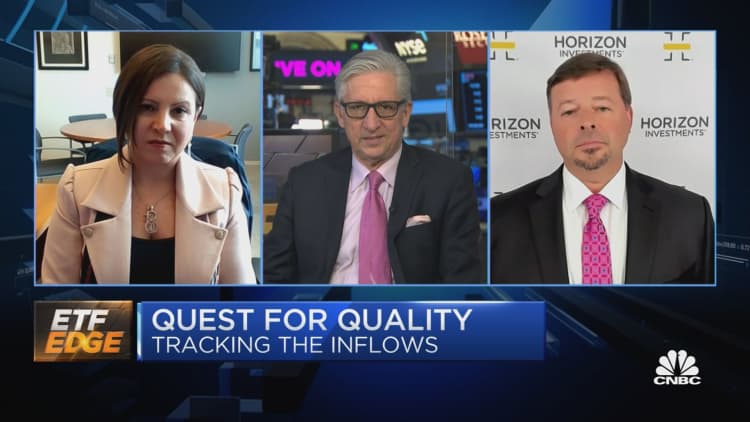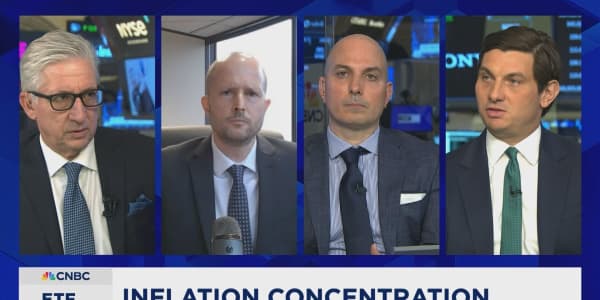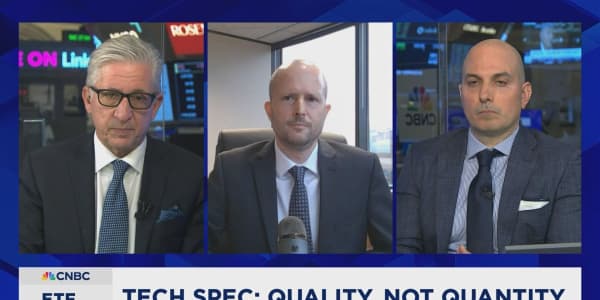
Amid rolling banking stress and ongoing inflation and recession concerns, the flight to high-quality funds has become more appealing for exchange-traded fund investors.
"The stronger balance sheet is definitely the main driver and the main criteria to describe the quality of a certain stock in our portfolio," Anna Paglia, Invesco's global head of ETFs and indexed strategies, told CNBC's Bob Pisani on "ETF Edge" on Monday.
Flows into Invesco's S&P 500 Quality ETF (SPHQ) have accelerated in 2023, attracting more than $906 billion since the start of the year, according to FactSet.
According to Invesco, the fund tracks the performance of S&P 500 stocks with the highest-quality score, which is calculated based on three measures: return on equity, accruals ratio and financial leverage ratio.
"Our clients are really worried about what they see in the marketplace -- high interest rates, high inflation," Paglia said. "So, it's not a coincidence that you see high quality and low volatility being in the driver's seat."
She said that concerns over tighter credit and downside risk to elevated profit expectations are additional factors pushing investors toward fixed income funds.
"This is not really an investment story for returns," Paglia said. "This is more of a defensive story that plays well under the current market environment."
While measures of quality might vary by fund or firm, common criteria like steady balance sheets and cash flows make the factor attractive in a volatile market.
But in a recovery stage, Scott Ladner, chief investment officer of Horizon Investments, suggested adding "junk" strategies to gain more exposure to the economic rebound.
"When you want a junk portfolio is when you're coming through the trough," Ladner said in the same segment Monday. "Because that's the time when you do want high leverage, you do want variability."
While Ladner explained the benefits of junk-seeking strategies, he affirmed that quality is still the standout factor in a slow-growth market environment.
"It could provide some form of safety and keep people invested, or get them invested in the first place," he said. "That behavioral modification aspect to investing in a quality portfolio in a time of economic uncertainty can be just as powerful as the economic implications of doing that."





